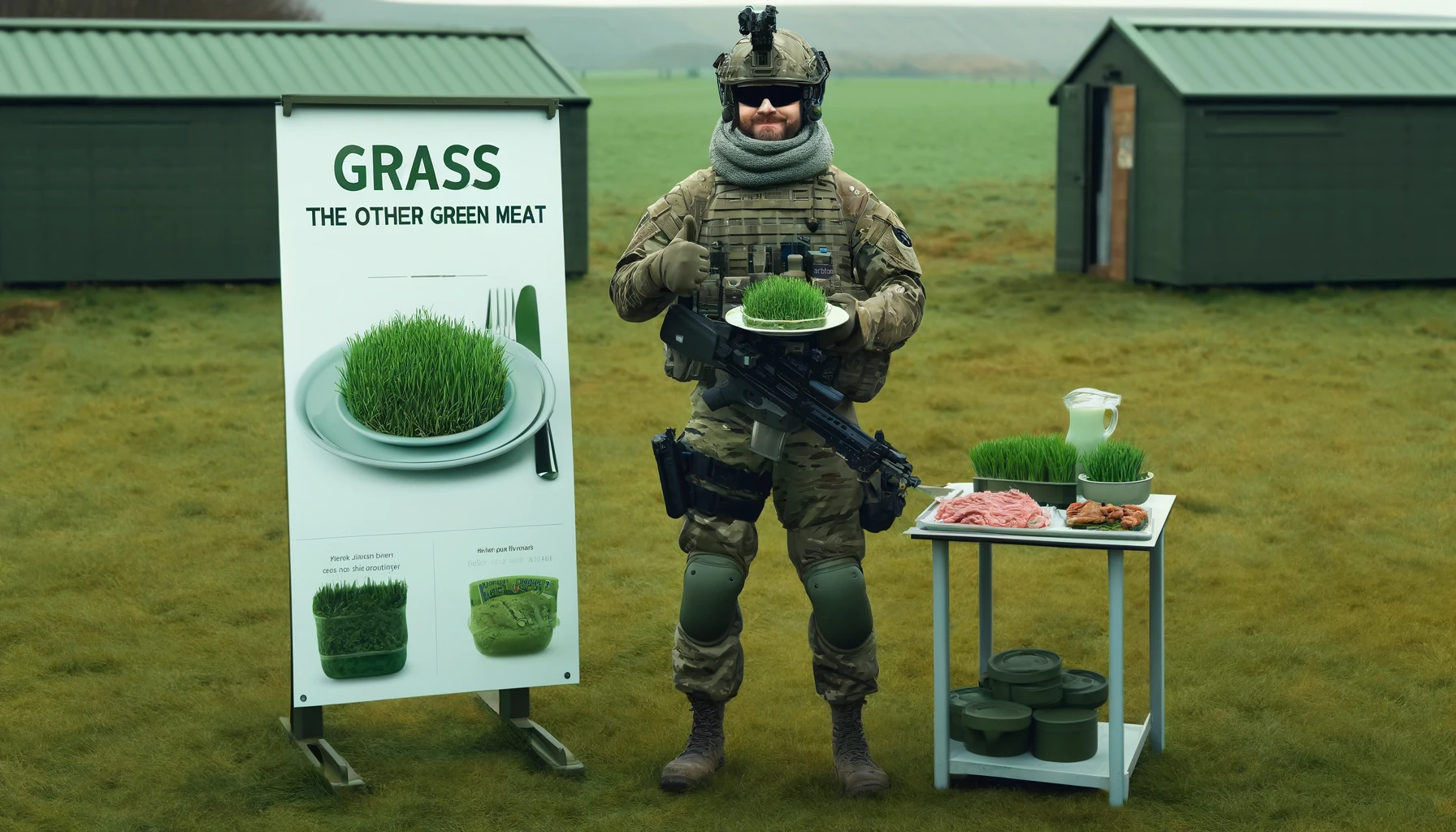In a world where diet trends come and go faster than one can say “kale smoothie,” a new fad is taking the culinary and fitness communities by storm, courtesy of an unlikely source: a soldier from the Israel Defense Forces (IDF). Dubbed “Grass: The Other Green Meat,” this diet promises not only a return to the basics of human sustenance but also an unparalleled connection to the earth—quite literally.
The soldier, who began eating grass out of necessity during a particularly grueling training exercise in a remote location, reported experiencing a surge in energy levels, improved digestion, and a newfound sense of ecological responsibility. “At first, it was just a way to stay on my feet,” he said. “But then I realized, hey, cows do it, so why can’t we?”
The diet, which consists largely of various types of grasses, supplemented with traditional greens for those not ready to commit fully to their inner herbivore, has sparked both curiosity and controversy. Nutritionists are divided, with some praising the diet’s low-fat, high-fiber qualities, and others cautioning against potential nutritional deficiencies and the undeniable challenge of human stomachs digesting cellulose.
“Grass-fed beef is one thing, but grass-fed humans? That’s quite another,” remarked Dr. Chewy Greens, a nutritionist with a penchant for leafy diets. “However, the environmental impact—or lack thereof—makes it a fascinating subject for further study.”
Restaurants in hip neighborhoods worldwide are already hopping on the bandwagon, offering “grass-tasting menus” featuring a variety of grass types, from Kentucky Blue to Bermuda, each with its own unique flavor profile. “It’s all about the terroir,” explained Chef Verde, a pioneer in the grass-diet movement. “You haven’t lived until you’ve tried a nice, tender patch of Fescue, lightly seasoned with morning dew.”
Environmentalists are thrilled with the diet’s potential to reduce meat consumption and thus, livestock farming’s ecological footprint. “Eating grass could literally help save the planet,” enthused Greena Earthlover, an environmental activist. “Plus, it’s the ultimate locally sourced food.”
Despite its growing popularity, the diet has its detractors, who argue that humans are simply not meant to graze. Meanwhile, lawn care companies are reporting a spike in sales of high-end, organic fertilizers, as enthusiasts strive to cultivate the perfect dining patch in their own backyards.
The IDF, for its part, has not officially endorsed the diet but notes that it supports any initiative that promotes resilience and adaptability among its ranks. As for the soldier who started it all, he’s just happy to have introduced the world to a new way of thinking about food. “Who knew being stuck without rations could lead to the next big thing in dieting?” he mused, taking another thoughtful nibble of his front lawn.

